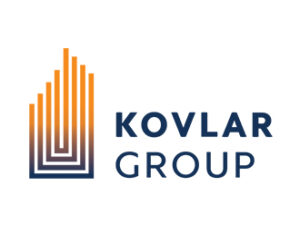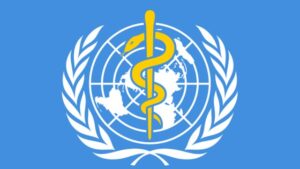
Today, the news agency Interfax-Ukraine hosted a press conference titled “Fashion PRORYV” — a platform for cultural diplomacy and Ukraine’s international dialogue with the world.
“Ukrainian youth have proven that even in the darkest times they are capable of rising to moral and spiritual heights. And it is with them that a new era of Ukrainian fashion culture begins,” emphasized Golda Vynohradska, the competition organizer and president of the public union “Fashion PRORYV.”
According to her, “Fashion PRORYV” emerged as the fashion industry’s response to the war and since 2014 has evolved into an initiative that brings together vocational education, manufacturing, and international partners. At first, the project had a practical goal — the organizers designed and produced items needed for the front line — and later it grew into a competitive platform with partnerships, international shows, and presentations of Ukrainian participants’ works abroad.
Natalia Sasina, president of the Italian association Vita World (joining online), said that the Italian side is taking part in the “Fashion PRORYV for Freedom and Peace” event together with Fashion Globus Ukraine, engaging fashion schools and Italy’s professional community. She stressed that the initiative has not only an artistic but also a social dimension: “This is an event that speaks about the war — and at the same time about dignity, beauty, and the power of creativity. We want to show Ukraine not in the language of pity, but in the language of talent and resilience.”
A separate part of the discussion during the press conference focused on workforce training for the light industry and the role of vocational education in the country’s recovery. Kateryna Myroshnychenko, head of the All-Ukrainian Association of Vocational Education Workers, noted that stereotypes still persist in society about vocational education as “non-prestigious” and “secondary,” but the reality of war has completely disproved them.
“From the first days of the war, our students aged 15–17, sometimes even younger, worked to supply the front line: with sewn products, warm clothing, and institutions mastered new technologies and processes to respond to the needs of the time. Today vocational education is one of the powerful waves of support for the army and the economy,” she said.
At the same time, Myroshnychenko drew attention to the shrinking network of institutions that train personnel for the light industry and emphasized the need for a state policy to support the sector. According to her, a number of countries — in particular Turkey and China — show that an economic upturn often begins precisely with the development of light industry, investment in manufacturing, and workforce training.
In the context of international cooperation, participants of the press conference said that practical partnerships around the sector are capable of launching specific projects already in the short term. In particular, an example was cited of foreign companies’ interest in cooperation with Ukrainian institutions and production sites after the demonstration of competition works.
While discussing the interaction between business and the state, participants emphasized that a systemic breakthrough requires stable “education–business–state” models, as well as regular dialogue with sector employers. According to the speakers, successful pilot approaches to partnerships with employers in Ukraine had existed earlier, including in certain manufacturing sectors, and such practices should be scaled up.
Dmytro Kalach, a representative of Softorg, spoke about business participation in the development of vocational training, in particular through the creation of training laboratories at educational institutions, support for competitions, and involvement of companies as external partners in updating curricula and strengthening the practical component of training future specialists.
The press conference also included representatives of the organizers and partners, who noted that “Fashion PRORYV” is seen as a long-term platform combining cultural diplomacy, social responsibility, and the economic potential of the light industry — through support for talented youth, international collaborations, and promotion of Ukrainian manufacturing.
“Fashion PRORYV” is an initiative that brings together vocational education, the light industry, and international partnerships. Within the platform, competitive programs and presentations are held aimed at supporting young designers and promoting Ukraine through a modern cultural and production ecosystem.
As reported, the Column Hall of the Kyiv City State Administration hosted the ceremonial final of the 8th All-Ukrainian Professional Skills Competition “Fashion PRORYV for Freedom and Peace,” within which collections of sports and adaptive clothing were presented and the winners were awarded.
CULTURAL DIPLOMACY, FASHION PRORYV, LIGHT INDUSTRY, VOCATIONAL EDUCATION

The Ukrainian company Kovlar Group (Kovlar Group, Ammokote TM) announced its participation in the first meeting of the Verkhovna Rada working group on the application and development of legislation in the field of construction products on the market, which took place on February 16 in the format of a video conference.
According to the parliament’s announcement, the working group operates under the Committee on State Administration, Local Self-Government, Regional Development, and Urban Planning and was created to develop solutions for the implementation of the new EU Regulation 2024/3110, which establishes uniform rules for the admission of construction materials to the market.
The first meeting discussed issues related to the official translation of the Regulation, analysis of its provisions, and preparation of a “road map” of changes for various types of construction products, as well as a review of approaches to conformity assessment and strengthening of product quality control in the domestic market.
The Verkhovna Rada Committee previously reported that the working group on construction products was headed by Committee Chair Olena Shulyak, and that members of parliament, government officials, and relevant experts were to be involved in the work.
Kovlar Group is a Ukrainian company that manufactures passive fire protection products; it works, in particular, with Ammokote brand products and is a leader in its market. Representatives of the company participate in the work of technical committees on standardization in the field of fire safety and protection of buildings and structures.
Kovlar Group LLC was founded in 2015 with a registered capital of UAH 1.2 million. Its founders and ultimate beneficiaries are Kostyantyn Kalafat (40%), Andriy Ozeychuk (35%), and Lyubov Vakhitova (25%). According to OpenDataBot, the company earned UAH 46,980,400 in revenue and UAH 6,109,800 in net profit in the first three quarters of 2025.

US President Donald Trump hopes to reach an agreement on resolving Russia’s war against Ukraine by fall 2026, linking the desired timeline to the US domestic political calendar, media outlets reported, citing The New York Times.
Earlier, a more immediate deadline of “by early summer” was publicly announced. Reuters, citing The New York Times, reported that the Trump administration is increasing pressure on Kyiv in an attempt to end the war “by early summer.” The deadline “by autumn” is tied to the US midterm elections, which are scheduled for November 3, 2026.
Meanwhile, European intelligence officials commented to Reuters that they were skeptical about the possibility of reaching a lasting agreement as early as 2026 and pointed out that, in their assessment, Russia was not showing any interest in real peace, using the negotiating track to obtain economic and sanctions concessions.

Ukrainian citizens ranked third among foreign buyers of residential real estate in Turkey in January 2026, purchasing 77 properties, according to data cited by Turkish media with reference to the Turkish Statistical Institute (TÜİK). The first and second places were taken by citizens of the Russian Federation (219 purchases) and Iran (118).
Overall, foreigners bought 1,306 housing units in Turkey, which is 20.8% less than in January 2025. The share of transactions involving foreigners in the total volume of home sales in the country amounted to 1.2%.
Geographically, foreign demand at the beginning of the year was concentrated in the largest and most “tourist” regions: in January, foreigners bought 595 units in Istanbul and 375 in Antalya.
The total number of housing transactions in Turkey in January amounted to 111,480, which is 4.7% less than a year earlier. Against this backdrop, the decline in sales to foreigners continued, and local observers link the downturn, among other things, to rising prices and discussions of the parameters of “investment” citizenship and the incentives associated with it.
The trend toward cooling foreign demand was also noticeable in the full-year 2025 results: foreigners purchased 21,534 units (-9.4% y/y). By nationality, Russians led (3,649), followed by Iranians (1,878) and Ukrainians (1,541). By location in 2025, foreigners most often bought in Istanbul (7,989), Antalya (7,118), and Mersin (1,800).

Up to four in ten cancer cases worldwide can be prevented, according to a joint statement by the World Health Organization (WHO) and the International Agency for Research on Cancer (IARC) following a new global analysis.
According to the authors’ estimates, 37% of all new cancer cases in 2022, or about 7.1 million cases, were linked to preventable causes. The analysis covers 30 modifiable risk factors, including tobacco, alcohol, high body mass index, low physical activity, air pollution, and ultraviolet radiation, as well as, for the first time, nine infections that can cause cancer.
The WHO indicates that tobacco remains the leading preventable cause of cancer (about 15% of new cases), followed by infections (about 10%) and alcohol consumption (about 3%). Lung, stomach, and cervical cancer are among the most significant contributors to preventable morbidity.
The organization notes that the proportion of preventable cases is higher in men than in women – 45% versus 30%. Regional differences are also significant: among men, the highest proportion is recorded in East Asia (57%), the lowest in Latin America and the Caribbean (28%), and among women, the range is from 24% in North Africa and West Asia to 38% in sub-Saharan Africa.
WHO and IARC emphasize the need for prevention, including strengthening tobacco control policies, alcohol regulation, HPV and hepatitis B vaccination, improving air quality, improving occupational safety, and creating a healthier environment for nutrition and physical activity.

On February 19, the Board of the National Bank of Ukraine (NBU) decided to classify the state-owned PIN Bank as insolvent. As in the case of Motor Bank, the reason was the failure to comply with the regulator’s written request to submit a revised financial recovery plan, taking into account the comments made after the bank was classified as problematic, according to the NBU website.
The National Bank also emphasized that PIBank is not systemically important (its share in the sector is 0.01% of assets) and was classified as problematic on December 16, 2025, due to a violation of the minimum regulatory capital requirements.
The bank’s regulatory capital on the date of the decision was UAH 73 million, while the National Bank’s minimum requirement was UAH 200 million.
The Deposit Guarantee Fund will reimburse depositors in full, including interest, as of the end of the day before the start of the procedure for withdrawing the bank from the market, except in cases specified by law.
As reported, in February 2023, the High Anti-Corruption Court of Ukraine seized 88.89% of the shares of PIN Bank, which belonged to Russian businessman Yevgeny Giner, in favor of the state.
According to the National Bank, at the beginning of the year, the financial institution ranked 59th (UAH 212.7 million) among 60 banks in Ukraine in terms of total assets, and its loss for 2025 amounted to UAH 63.2 million.